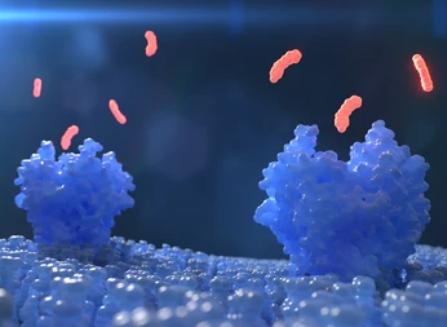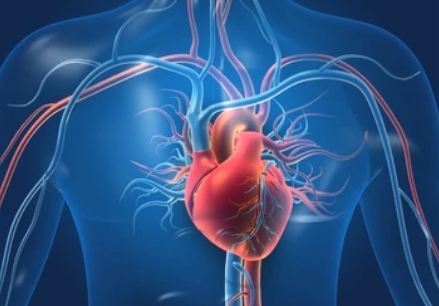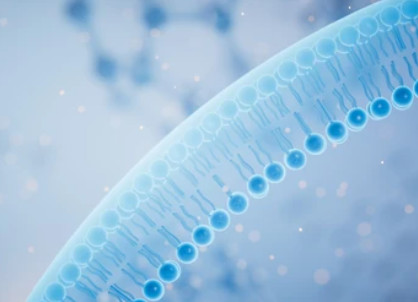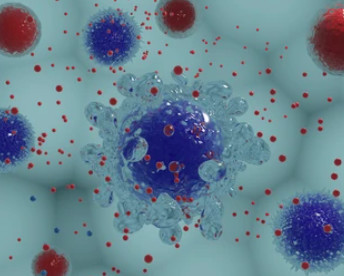Membrane Proteomics and Cardiovascular Health: Unveiling New Diagnostic and Therapeutic Avenues
Online InquiryIn the ever-evolving landscape of cardiovascular health research, the exploration of membrane proteomics has emerged as a pivotal avenue, offering fresh insights into the diagnosis and treatment of cardiovascular diseases (CVDs). Membrane proteins, including ion channels and transporter proteins, play a central role in the intricate orchestration of cellular processes underlying cardiovascular function.

The Crucial Role of Membrane Proteins in Cardiovascular Health
Membrane Proteins: Guardians of Cellular Homeostasis
At the forefront of cardiovascular health are membrane proteins, which act as gatekeepers regulating the flow of ions, nutrients, and signaling molecules across cell membranes. Ion channels, such as voltage-gated sodium channels (NaV) and calcium channels (CaV), contribute to the generation and propagation of action potentials in cardiac muscle cells, thus governing heart rhythm and contractility. Transporter proteins, including ATP-binding cassette (ABC) transporters and solute carrier (SLC) family members, are instrumental in maintaining ion gradients and ensuring optimal nutrient uptake for cellular metabolism.
Ion Channels: Rhythmic Symphony of the Heart
Ion channels, found abundantly in cardiac and vascular tissues, play a pivotal role in shaping the electrical properties of excitable cells. For instance, mutations in the SCN5A gene encoding the alpha subunit of the cardiac sodium channel can lead to Long QT Syndrome, a condition associated with life-threatening arrhythmias. Conversely, dysfunction in potassium channels has been linked to the development of atrial fibrillation. The exploration of these ion channels at the proteomic level holds the promise of uncovering novel biomarkers for arrhythmias and providing insights into their underlying mechanisms.
Transporter Proteins: Navigators of Nutrient Balance
Transporter proteins are equally indispensable for cardiovascular health. Glucose transporters (GLUTs) ensure an adequate supply of glucose to energy-demanding cardiac muscle cells, while dysfunction in these transporters contributes to diabetic cardiomyopathy. Similarly, the role of ABC transporters in lipid homeostasis has garnered attention due to their implication in atherosclerosis, where cholesterol efflux is perturbed. Membrane proteomics offers a means to scrutinize the expression and function of these transporters, fostering a deeper understanding of their involvement in CVDs.
Membrane Proteomics Unveiling Diagnostic Insights
Biomarker Discovery: Illuminating Early Disease Detection
The advent of high-throughput proteomic techniques has enabled the identification of potential biomarkers for cardiovascular diseases. By profiling membrane protein expression patterns in patient samples, researchers at Creative Proteomics and beyond have identified candidate biomarkers linked to conditions such as heart failure, hypertension, and myocardial infarction. These biomarkers hold the potential to revolutionize early disease detection, allowing for timely intervention and improved patient outcomes.
Personalized Medicine: Tailoring Therapies to Individuals
Membrane proteomics not only aids in diagnosing CVDs but also paves the way for personalized therapeutic strategies. The intricate interplay of membrane proteins in drug response and adverse effects is being unraveled through proteomic studies. For instance, variations in the expression of drug transporters can influence the efficacy of antiplatelet medications or beta-blockers. Utilizing this knowledge, clinicians can tailor treatment regimens based on an individual's proteomic profile, optimizing therapeutic outcomes while minimizing side effects.
Prospects of Membrane Proteomics in Cardiovascular Therapy
Targeted Therapies: Precision Medicine at its Finest
The era of one-size-fits-all treatments for cardiovascular diseases is gradually yielding to the precision of targeted therapies. Membrane proteomics enables the identification of druggable targets among membrane proteins, allowing for the development of novel pharmacological agents. Creative Proteomics' expertise in membrane proteomics offers a robust platform for elucidating the structural and functional characteristics of these targets, facilitating rational drug design.
Unveiling Mechanisms: Deepening Therapeutic Insights
Understanding the intricate mechanisms underpinning CVDs is essential for designing effective therapeutic interventions. Membrane proteomics empowers researchers to delve into the intricate network of protein-protein interactions and post-translational modifications that govern cardiovascular pathways. By deciphering these mechanisms, Creative Proteomics' experts, alongside the global scientific community, are uncovering novel avenues for intervention, ranging from modulating ion channel activity to restoring proper transporter function.

In the realm of cardiovascular health, membrane proteomics stands as a beacon of hope, illuminating the dark corners of disease mechanisms and therapeutic possibilities. Creative Proteomics, with its unparalleled expertise in proteomic analysis, is at the vanguard of unraveling the intricacies of these proteins and their implications for cardiovascular diseases. As research advances and technologies evolve, the fusion of membrane proteomics with clinical insights promises to redefine cardiovascular diagnostics, treatment, and ultimately, patient outcomes.
Creative Proteomics offer comprehensive membrane proteomics research services including membrane proteomics analysis, membrane lipidomic analysis, membrane Protein-molecule interaction analysis, membrane protein structure determination, among others. We play an important role in advancing membrane proteomics research.
Related Services
* For Research Use Only. Not for use in diagnostic procedures.







